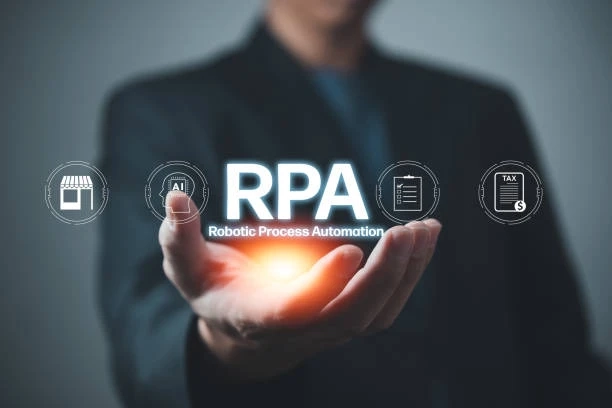Embarking on a career in Robotic Process Automation (RPA) promises a fusion of innovation and efficiency. Within this guide, we navigate the intricate terrain of RPA development, offering insights and actionable steps for those initiating their journey as RPA Developer Career. This comprehensive resource aims to equip individuals with the knowledge and tools essential to navigate the dynamic world of RPA, fostering a foundation for innovation and efficiency in their pursuit of a successful career in Robotic Process Automation.
Understanding RPA
RPA stands as a revolutionary technology, streamlining routine tasks and enabling businesses to enhance workflows in diverse sectors. Mastery of RPA's principles and applications is key to reshaping organizational operations, providing the bedrock for a prosperous career in this dynamic field. Proficient RPA Developer Career excel in identifying processes ripe for automation, a skill that sets them apart. By comprehending the transformative potential of RPA and its capacity to optimize operational efficiency, individuals entering this domain position themselves as valuable contributors to the evolving landscape of technological innovation and process enhancement. In essence, understanding RPA is not merely about grasping a tool; it's about recognizing its strategic implications and leveraging its capabilities to drive meaningful change within organizations.
Skills and Knowledge Required
Flourishing as an RPA Developer Career necessitates the cultivation of essential skills, including adept problem-solving, meticulous attention to detail, and a foundation in logical thinking. Industry-leading RPA tools such as UiPath, Blue Prism, and Automation Anywhere should be thoroughly understood, with a focus on grasping their functionalities. The dynamic nature of the RPA landscape demands constant awareness, making continuous learning a linchpin for sustained competitiveness in this rapidly advancing field. Beyond mastering the tools, success as an RPA developer hinges on the ability to apply problem-solving skills to real-world scenarios, ensuring a nuanced understanding of the intricacies involved in automating processes. This combination of core skills, tool proficiency, and a commitment to ongoing learning forms the bedrock for a thriving career in the dynamic realm of Robotic Process Automation.
Setting Up Your Development Environment
Establishing an effective RPA development environment is the cornerstone of efficiency in this field. Begin by immersing yourself in the intricacies of configuring RPA tools, guaranteeing that your workspace is optimized for a smooth and seamless workflow. The crux of a productive coding and testing process lies in a robust development environment. It serves as the foundational framework for the seamless implementation of automated processes, ensuring that your RPA endeavors are executed with precision and efficacy. A well-configured atmosphere not only facilitates the growth cycle but also improves the across-the-board trustworthiness and enactment of automated solutions. Invest the time and effort into setting up your development environment thoughtfully, and you pave the way for a more effective, efficient, and successful journey into the realm of Robotic Process Automation.
Learning RPA Programming Languages
Embarking on your RPA journey involves acquainting yourself with pivotal programming languages in the field, notably VBScript and C#. Delve into the syntax and applications of these languages, EmergenTeck(Kausal Vikash) is a key to learning RPA programs as a profound understanding empowers you to craft automation scripts with effectiveness and efficiency. Mastery of these languages not only enables seamless RPA development but also enhances your problem-solving skills, which are crucial for navigating the intricacies of automating processes. A solid foundation in VBScript and C# lays the groundwork for a proficient RPA developer capable of creating robust and tailored solutions to meet the evolving demands of automation in various domains.
Building Your First RPA Project
Bridge the gap between theory and practice by initiating your first RPA project. Begin with a simple task, gradually advancing to more complex processes. This hands-on experience is invaluable, refining your skills and instilling the confidence necessary to confront intricate automation challenges in real-world scenarios. Transitioning from theoretical knowledge to practical application not only solidifies your understanding of RPA Online Training principles but also equips you with the expertise to navigate and innovate within the dynamic landscape of process automation. Embrace this foundational project as a stepping stone toward becoming a proficient RPA developer.
Real-World Practice and Projects
Bridge theory with practical proficiency through active involvement in real-world Intelligent Automation & RPA Training in Bangalore projects. Beyond honing problem-solving skills, these projects immerse you in the intricacies of implementing automation across diverse scenarios. Collaborate with seasoned professionals or mentors to glean insights into best practices and industry standards, augmenting your skill set. Real-world practice not only deepens your understanding of RPA applications but also cultivates adaptability, a crucial trait in navigating the multifaceted challenges of automation. Embrace these opportunities to refine your craft, ensuring that your skills align seamlessly with the dynamic demands of real-world RPA scenarios.
Networking and Building a Portfolio
Establish a network within the RPA community through active engagement in forums, online groups, and industry events. Contribute actively to discussions, sharing your experiences and seeking guidance when necessary. Simultaneously, craft a comprehensive portfolio that showcases your RPA projects. Beyond validating your skills, this well-documented portfolio becomes a testament to your practical expertise, elevating your profile in a competitive job market. Building connections and a robust portfolio not only enhances your visibility within the RPA landscape but also positions you as a proficient and collaborative professional ready to contribute meaningfully to the evolving field of RPA Developer Skills and Career Path.
Preparing for Interviews
Prepare comprehensively for RPA interviews to set the stage for success. Familiarize yourself with prevalent interview questions tailored to the field, and craft concise, confident responses that accentuate your skills and experiences. Elevate your preparation by participating in mock interviews and refining both your communication and presentation skills. This proactive approach ensures that you can effectively convey your expertise in a professional setting, leaving a lasting impression on potential employers. By anticipating and addressing interview challenges, you position yourself as a well-prepared and confident candidate, ready to navigate the intricacies of RPA Developer Skills and Career Path discussions and showcase your suitability for the role.
Embarking on your RPA Developer Career journey underscores the importance of continuous learning and adaptability for success. Stay updated on emerging trends, consistently refine your skills, and embrace new challenges with an open mind. In the dynamic realm of Robotic Process Automation, success awaits those who approach it with dedication and a steadfast commitment to ongoing growth. By cultivating a mindset of perpetual learning and adaptability, you position yourself to not only navigate the evolving landscape of RPA Developer Skills and Career Path but to thrive in it, making meaningful contributions to this innovative and transformative field.


